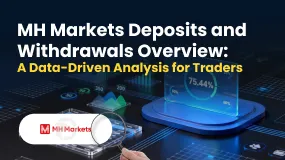简体中文
繁體中文
English
Pусский
日本語
ภาษาไทย
Tiếng Việt
Bahasa Indonesia
Español
हिन्दी
Filippiiniläinen
Français
Deutsch
Português
Türkçe
한국어
العربية
Asian Stocks Fall As Investors Anticipate Central Bank Hikes
Abstract:Asian equities traded cautiously and bonds suffered minor losses as investors prepared for a busy week of central bank meetings, earnings announcements, and critical U.S. economic data.

On Tuesday, Asian equities traded cautiously and bonds suffered minor losses as investors prepared for a busy week of central bank meetings, earnings announcements, and critical U.S. economic data.
The Federal Reserve of the United States is widely expected to increase interest rates by 25 basis points (bps) on Wednesday. Both the Bank of England and the European Central Bank are set to announce interest rate hikes of 50 basis points on Thursday.
Meanwhile, over 100 S&P 500 businesses, including Apple, Amazon.com, and Google parent Alphabet, are set to report earnings this week, as well as the release of heavily anticipated U.S. employment figures.
“It's a huge week for both central banks and US markets,” ANZ analysts said in a note.
“We predict a 25 basis point (bps) rate increase and think that the Fed will warn against an early stop in the tightening cycle. Risk appetite may be susceptible to a correction.”
European markets were poised to begin down, with the pan-region Euro Stoxx 50 futures down 0.48%, the German DAX futures down 0.47%, and the FTSE futures down 0.29%. The S&P 500 e-mini futures in the United States were down 0.06%.
MSCI's broadest index of Asia-Pacific equities outside Japan fell 1.1% in Asia. So far this month, the index is up 9.9%, on track for its highest January performance since 2012.
The Nikkei market index in Japan fell 0.23%, while Australian shares fell 0.15%.
China's economy recovered to growth in January after a wave of COVID-19 infections spread quicker than predicted due to the suspension of pandemic restrictions. The official purchasing managers' index, which monitors industrial activity, increased from 47.0 in December to 50.1 in January.
Investors, on the other hand, were wary, waiting for further evidence of recovery in the pandemic-ravaged economy. After hitting a half-year high on Monday, China's blue-chip CSI300 index was down 1% in afternoon trading.
Even though Hong Kong's Hang Seng index fell 1.23% on Tuesday, it was still on track to have its best January performance since 1989.
On Monday, U.S. equities fell, with the main indexes plunging as shares of technology and other large firms fell.
The Dow Jones Industrial Average dropped 0.8% to 33,717.09, the S&P 500 sank 1.3% to 4,017.77, and the Nasdaq Composite slid 2.0% to 11,393.81.
Despite Monday's losses, the S&P 500 was on pace for its highest January gain since 2019.
Investors will be watching Chair Jerome Powell's press conference at the conclusion of the Fed's two-day policy meeting on Wednesday for hints on whether the rate-hiking cycle is coming to an end, as well as indications of how long rates may remain high.
Markets will also deal with a deluge of US economic data, culminating in Friday's January payrolls report. Investors perceive evidence of labor market weakness as a major component in bringing down excessive inflation.
The yield on benchmark 10-year Treasury notes, US10YT=RR, stayed steady ahead of central bank meetings and economic data, with the yield on US10YT=RR holding at 3.5457%, compared to its U.S. close of 3.551% on Monday.
The two-year yield, which climbs in tandem with traders' forecasts of increased Fed fund rates, reached 4.2424%, compared to a closing in the United States of 4.261%.
In terms of currencies, the US dollar, which was set to fall for the fourth month in a row, was marginally higher at 102.29 versus a basket of other major currencies.
The euro remained fairly flat on the day at $1.0841, having gained 1.3% in the previous month.
Oil prices plummeted ahead of anticipated central bank rises and signs of robust Russian exports in the energy sector.
Crude oil in the United States fell 0.44% to $77.56 a barrel. Brent oil has dropped to $84.85 per barrel.
Gold was down marginally. The spot price of gold was $1920.84 per ounce.
Keep an eye out for further Market updates.
Install the WikiFX App on your smartphone to keep up to speed on current events.
Download link: https://www.wikifx.com/en/download.html

Disclaimer:
The views in this article only represent the author's personal views, and do not constitute investment advice on this platform. This platform does not guarantee the accuracy, completeness and timeliness of the information in the article, and will not be liable for any loss caused by the use of or reliance on the information in the article.
Read more

In-Depth Review of Stonefort Securities Withdrawals and Funding Methods – What Traders Should Really
For any experienced forex and CFD trader, the mechanics of moving capital are as critical as the trading strategy itself. The efficiency, security, and transparency of a broker's funding procedures form the bedrock of a trustworthy, long-term trading relationship. A broker can offer the tightest spreads and the most advanced platform, but if depositing funds is cumbersome or withdrawing profits is a battle, all other advantages become moot. This review provides a data-driven examination of Stonefort Securities withdrawals and funding methods. We will dissect the available information on payment options, processing times, associated costs, and the real-world user experience. Our analysis is anchored primarily in data from the global broker regulatory inquiry platform, WikiFX, supplemented by a critical look at publicly available information to provide a comprehensive and unbiased perspective for traders evaluating this broker.

MH Markets Deposits and Withdrawals Overview: A Data-Driven Analysis for Traders
For any experienced trader, the integrity of a broker is not just measured by its spreads or platform stability, but by the efficiency and reliability of its financial plumbing. The ability to deposit and, more importantly, withdraw capital without friction is a cornerstone of trust. This review provides an in-depth, data-driven analysis of the MH Markets deposits and withdrawals overview, examining the entire fund management lifecycle—from funding methods and processing speeds to fees and potential obstacles. MH Markets, operating for 5-10 years under the name Mohicans Markets (Ltd), has established a global footprint. With a WikiFX score of 7.08/10, it positions itself as a multi-asset broker offering a range of account types and access to the popular MetaTrader platforms. However, for a discerning trader, the real test lies in the details of its payment systems and the security of their funds. This article dissects the MH Markets funding methods withdrawal experience, leveraging pr

GAIN Capital Review: Exploring Complaints on Withdrawal Denials, Fake Return Promises & More
Is your forex trading experience with GAIN Capital full of financial scams? Does the broker disallow you from withdrawing your funds, including profits? Have you been scammed under the guise of higher return promises by an official? Does the GAIN Capital forex broker not have an effective customer support service for your trading queries? Concerned by this, many traders have shared negative GAIN Capital reviews online. In this article, we have discussed some of them. Read on!

Can These Five Brokers boost your wealth?
Choosing a reliable broker can directly impact your long-term profitability. WikiFX evaluates a broker’s safety, regulatory compliance, and service quality. According to WikiFX’s latest ratings, the following five brokers consistently achieve higher scores than many competitors. Whether you're a beginner or a seasoned investor, these well-regulated, reputable platforms may help you trade with greater confidence and potentially boost your wealth.
WikiFX Broker
Latest News
GCash Rolls Out Virtual US Account to Cut Forex Fees for Filipinos
WikiFX's New Evaluation of ATM Capital LTD: Does its License Protect the Arab Investor?
How a Fake Moomoo Ad Led to the “New Dream Voyage 5” Scam
Is Axi Legit? A Data-Driven Analysis of Its Regulatory Standing and Trader Feedback
Trive Investigation: High Score, Hidden Risk - The Profit Paradox
In-Depth Uniglobe Markets Commission Fees and Spreads Analysis – What Traders Should Really Know
FXPesa Review: Are Traders Facing High Slippage, Fund Losses & Withdrawal Denials?
CMC Markets Australia Revenue Surges 34%, But High-Net-Worth Clients Face Tax Phishing Threat
The 350 Per Cent Promise That Cost Her RM604,000
INZO Commission Fees and Spreads Breakdown: A 2025 Data-Driven Analysis for Traders
Currency Calculator



